Brexit: David Davis hopes EU tour will ease talks
- Published
David Davis 'can live' with shorter EU transition
A European odyssey, which has taken David Davis to more than half of the EU's capital cities this year, is drawing to a close.
This weekend Mr Davis will swap the grandeur of chancelleries across Europe for the more functional surroundings of the EU quarter in Brussels.
The UK Brexit secretary will meet his EU counterpart Michel Barnier in Brussels on Monday.
It will be his first visit to the EU capital this year.
In an interview with BBC Newsnight the Brexit secretary said he was "reasonably confident" the UK will reach agreement on one key area at the heart of the negotiations: a transition phase after the UK leaves the EU in March 2019.
The UK has given ground by accepting the EU call for the transition to end in December 2020.
Prime Minister Theresa May had suggested a slightly longer transition of "around two years". This concession by the UK is balanced by an agreement that the UK and EU will establish a joint committee to ensure both sides observe a "duty of good faith" during the transition.
An agreement on a transition phase will create space for Mr Davis and Mr Barnier to move to the next stage: agreeing the outlines of a future trading relationship that will kick in once the transition phase ends.
The move to the second phase of negotiations will not, however, be straightforward.
Own interests
The EU is deeply frustrated that further steps have not been taken to resolve the dilemma over the Irish border. Britain says the Irish border, one of the main issues in phase one, cannot be finally resolved until the nature of the UK's future relationship with the EU has been agreed, at least in outline.
Britain believes that in the first phase of the negotiations, Mr Barnier achieved remarkable unity among EU member states because they each had an interest in agreeing the starter issues: the UK's financial settlement and the rights of EU citizens in the UK.
In the next phase, which will focus on trade and security, member states may have their own interests to champion.
The Brexit secretary believes that his tour of EU capitals will prove invaluable in the second phase of negotiations.
The UK will be able to "change tack" in some areas to address particular concerns of some member states who might, in turn, lend Britain a helping hand in the negotiations.
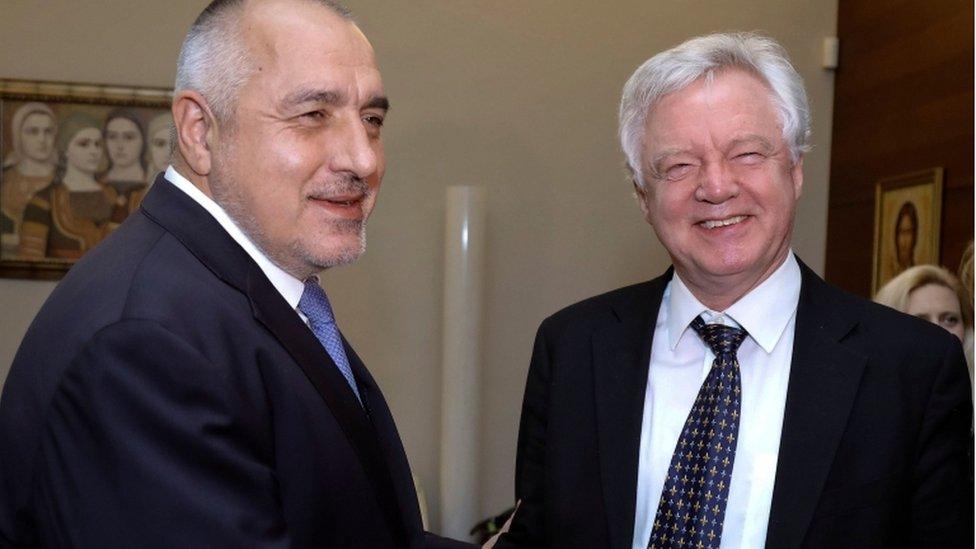
Visiting Sofia: The UK Brexit secretary with Bulgarian PM Boyko Borissov
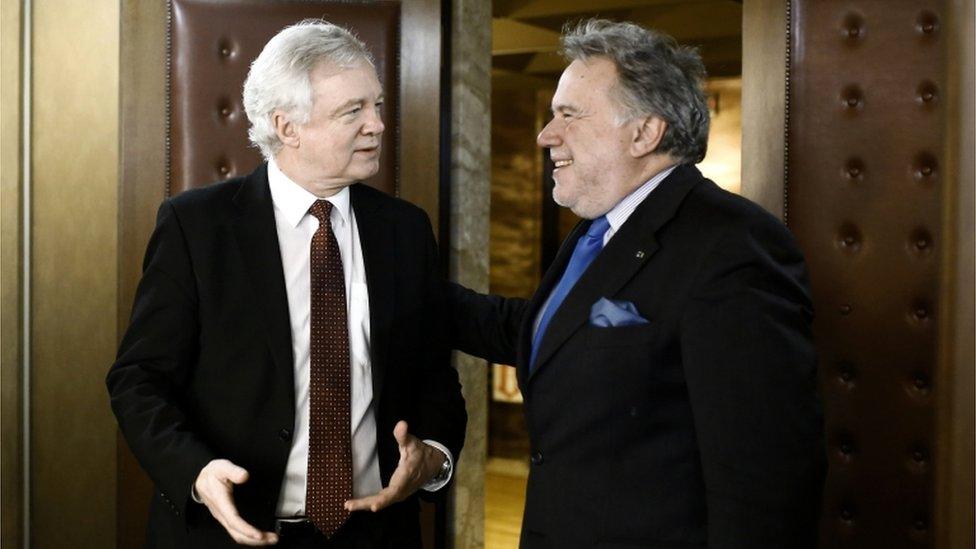
In Athens: Mr Davis with Greek Alternate Minister of Foreign Affairs George Katrougalos
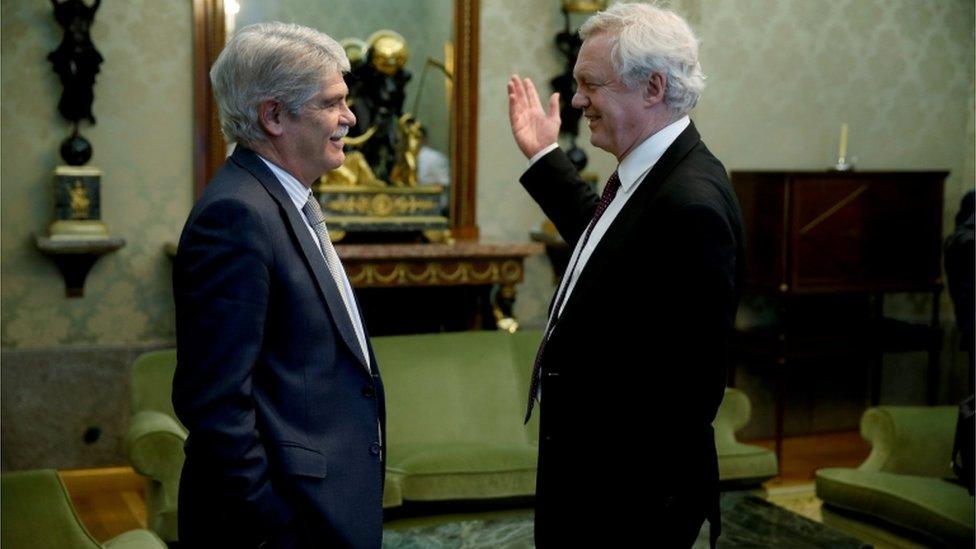
In Madrid: Meeting Spanish Foreign Minister Alfonso Dastis
During his European odyssey, the Davis visits have followed a routine pattern.
After flying in on an RAF plane, he bounds up to each capital's foreign ministry, greets the relevant minister like an old friend, cracks jokes and then settles down to hear the concerns of that country about Brexit.
On his first appointment in Copenhagen on Wednesday, Mr Davis joked to Anders Samuelsen, the Danish foreign minister, about how he has earned a reputation as a Jekyll and Hyde figure.
Mr Davis laughed about how he, a former SAS Reservist who has no need for a coat even in chilly northern Europe, had suffered the humiliation of having his travel plans disrupted by temperatures plummeting to the "minus 20" zone in neighbouring Sweden.
'Battle of machismo'
In a Newsnight interview on the final leg of his tour in the Czech capital Prague, the Brexit secretary denied he had been playing "divide and rule" as he flies from capital to capital.
"One of the things I have always said is people like to think negotiations are a sort of battle of machismo. Actually the best negotiations are the ones which find the best outcome for both sides. This is really that," he said.
In Prague, he heard from Martin Stropnický, the foreign minister, how keen the Czech Republic is to protect and enhance billions of pounds in exports to the UK. That will be down to the future trading negotiations, which will be based on EU guidelines that are due to be approved at next week's summit.
Mr Davis is relaxed about the draft guidelines, which raise the prospect of tariff-free trade in goods but also suggest a much harsher regime for services because of the UK's decision not to be bound by the rules of the single market.
The Brexit secretary said the guidelines are broad enough to allow a full-scale negotiation.
"Everybody is interested in having a deal, a deal that actually allows as much trade to continue on the same basis as possible. Of course it will be a tough negotiation. They all are. But I am confident we are going to get there.
"That is the thing that when people look back in 20 or 30 years' time that is the thing they are going to remember most: what was the basis upon which we continued the relationship after we left? It won't be the short term things, it will be that."
'Friends and allies'
In Denmark and in the Czech Republic, a former Warsaw Pact country, Mr Davis found strong support for the UK over Russia. He insisted that the UK's departure from the EU would not make it more difficult to secure such support in the future.
The UK Brexit secretary said: "I don't think they looked at a treaty before they decided what their opinion was. They heard what had happened, they saw what the prime minister said in the House of Commons and they made a judgment.
"They didn't say: 'Am I treaty bound to do this or that?' [On] defence and security, we are a big player."
As he clocks up the (RAF) air miles to win over friends, the Brexit secretary appears to have abandoned his old image as a Westminster bruiser from central casting.
Sitting in a grand reception room of the British embassy in Prague, with its panoramic views of the former seat of Holy Roman Emperors, he is a model of diplomacy, telling Newsnight: "One of my tasks is, we start as friends and allies of all 27 member states. We will stay friends and allies during this process. And after we have left the EU, we will still be friends and allies."
- Published14 March 2018
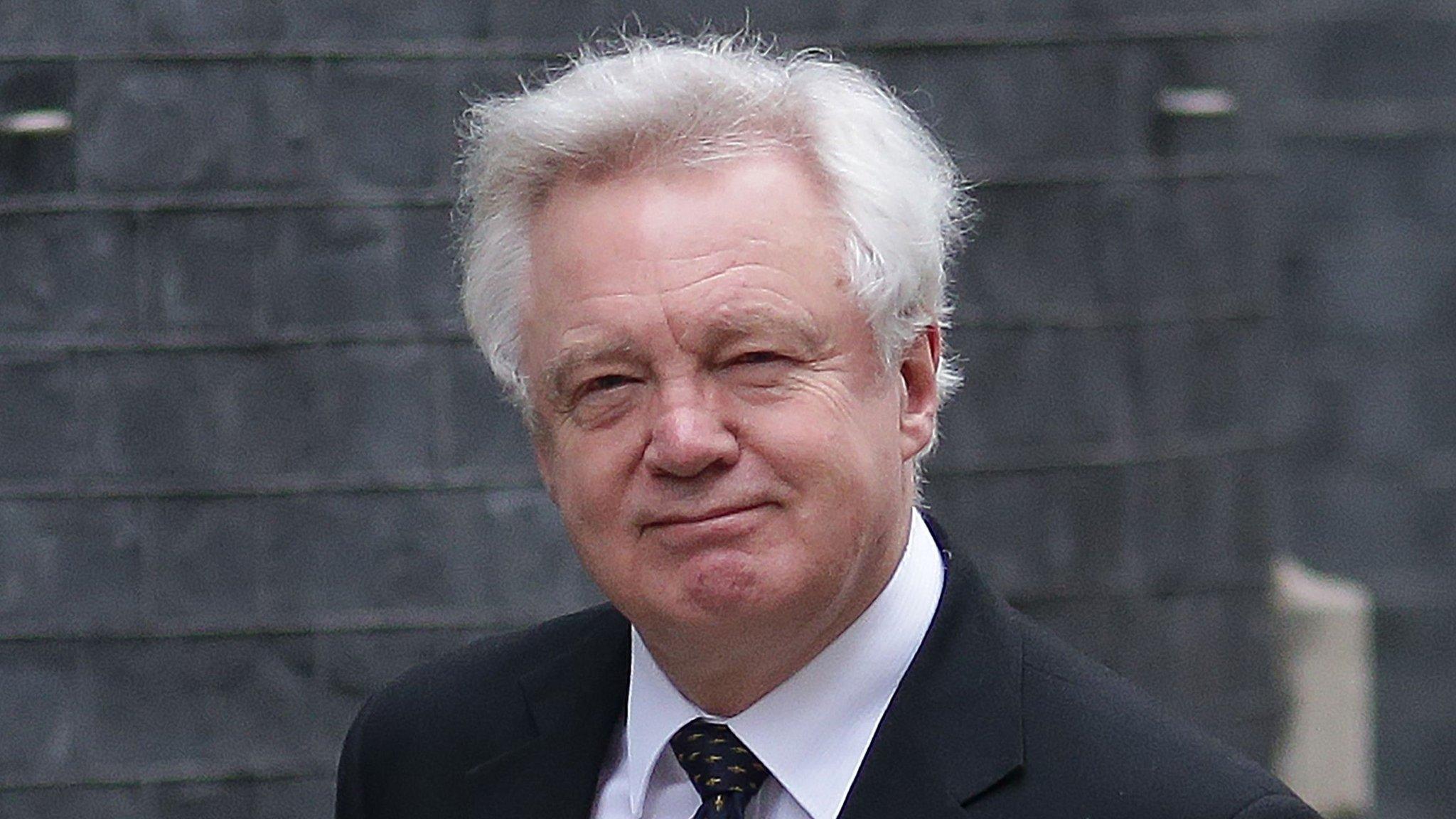
- Published7 March 2018
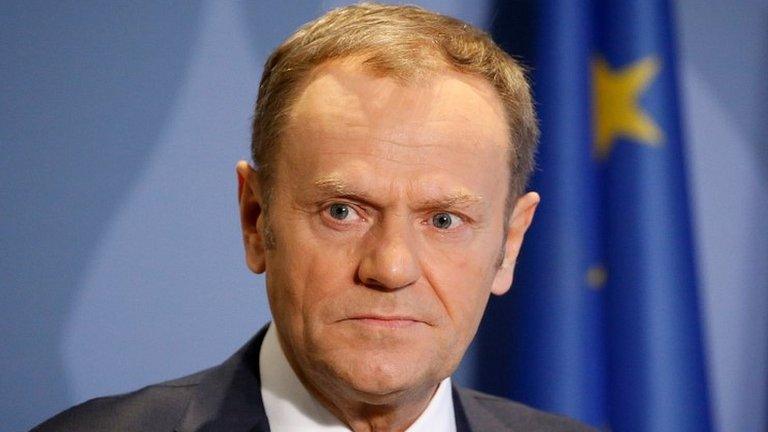
- Published30 December 2020
